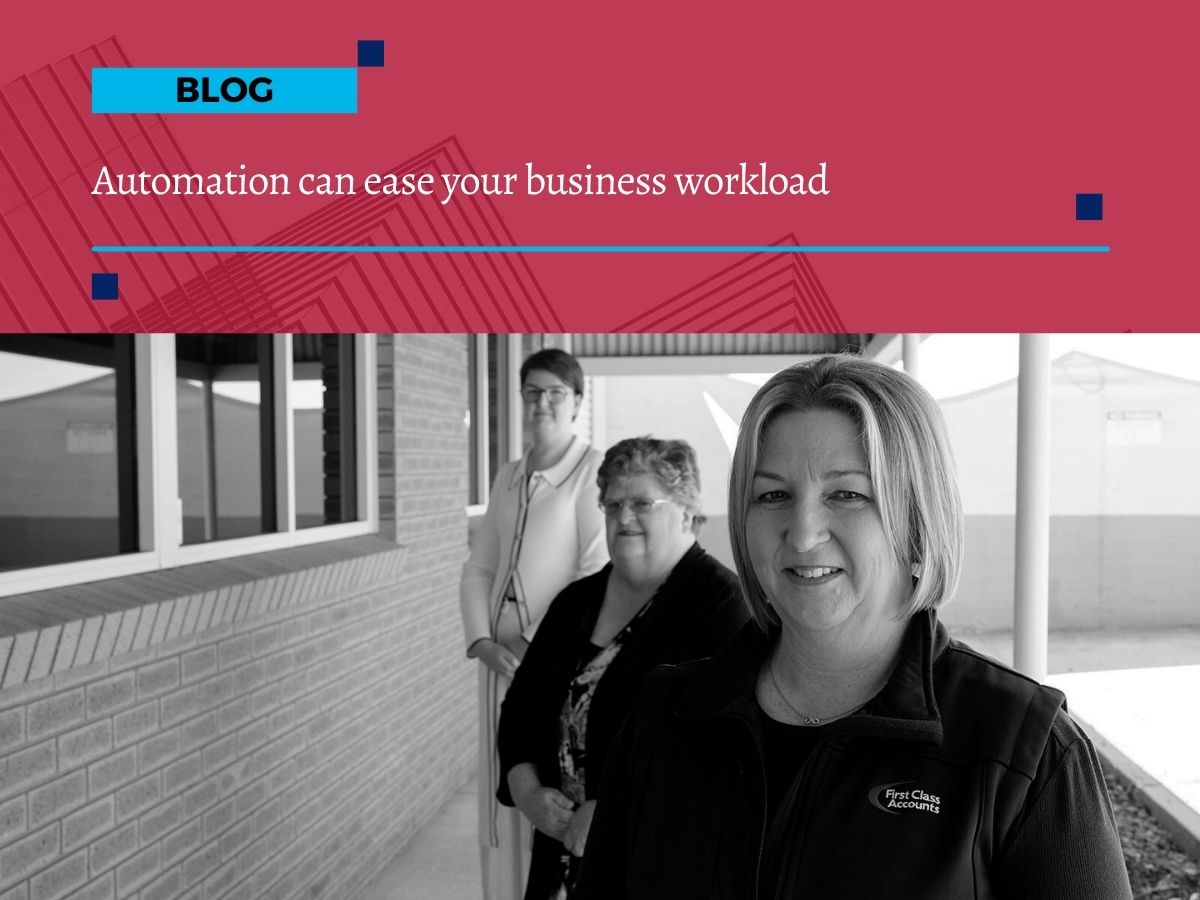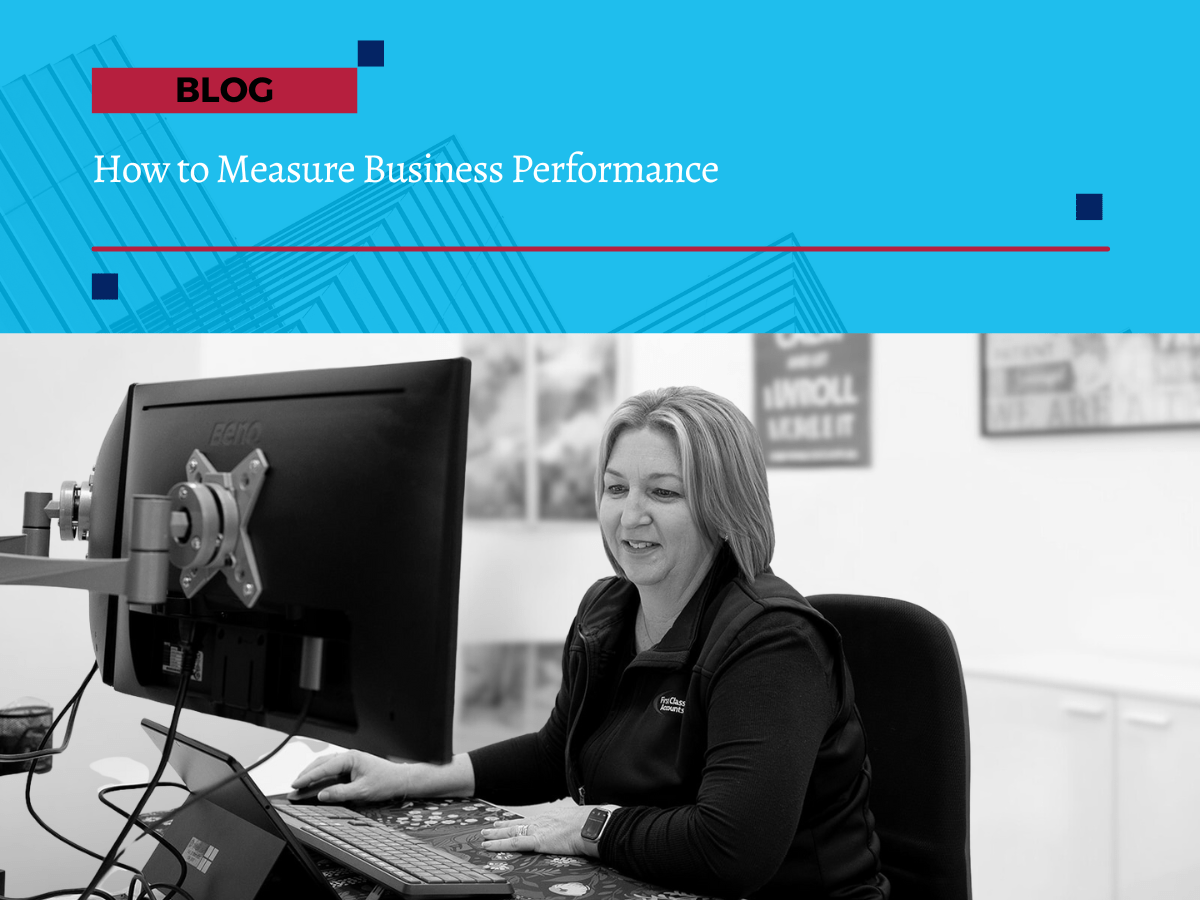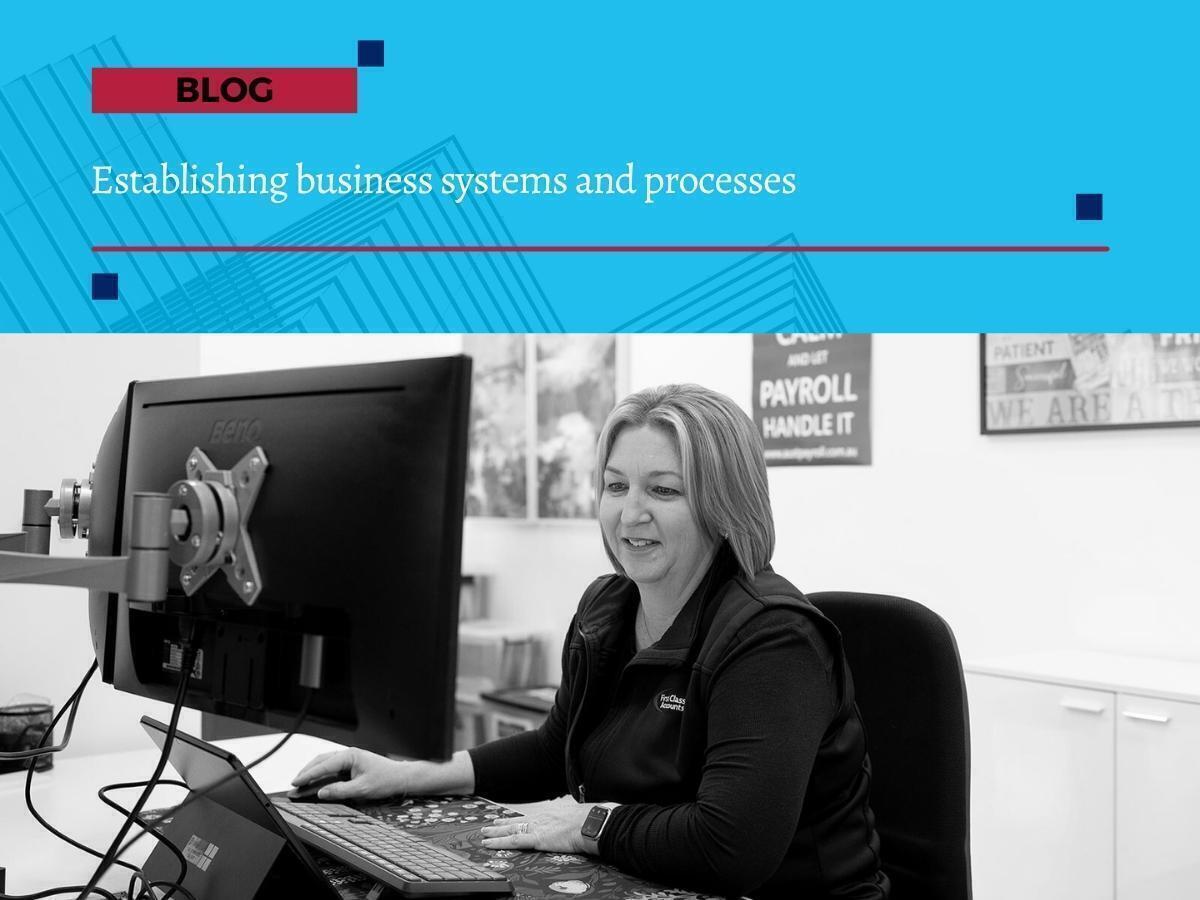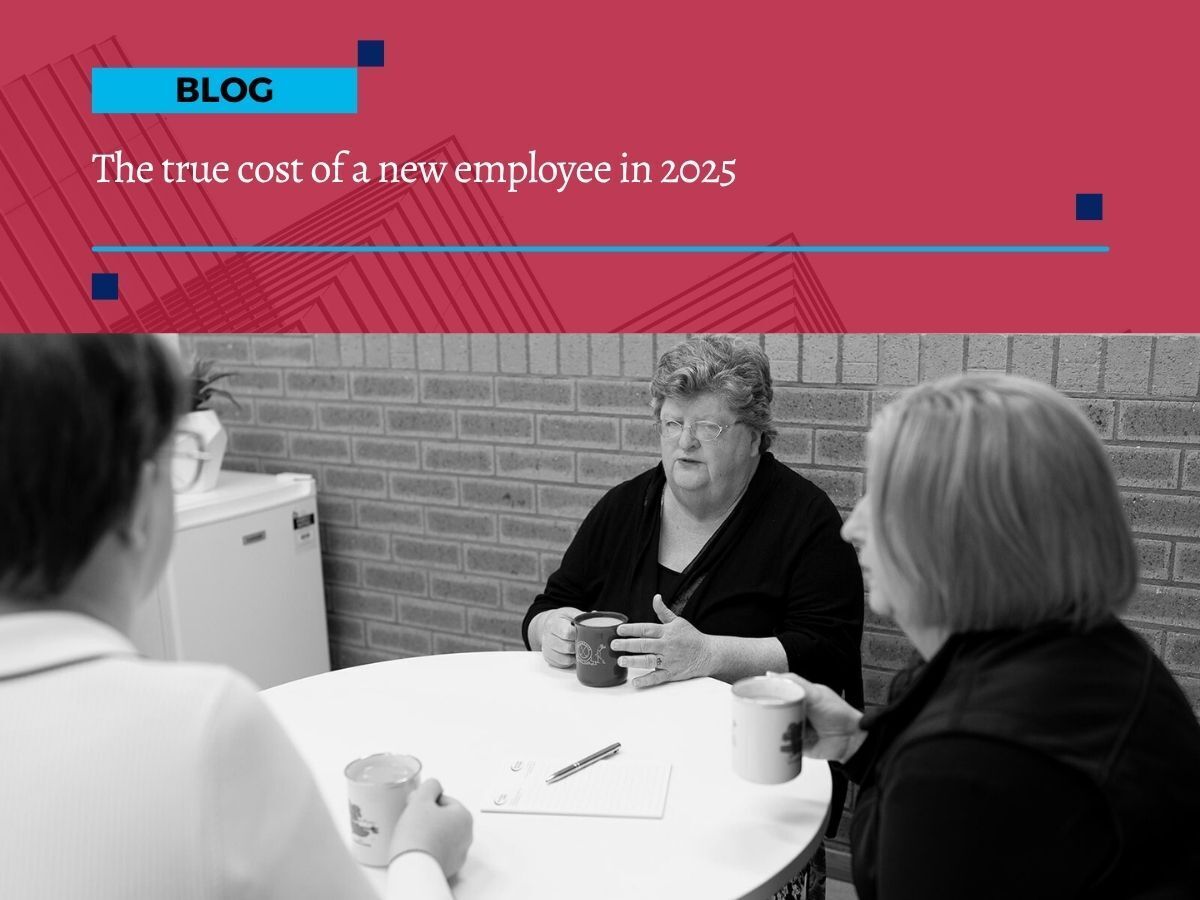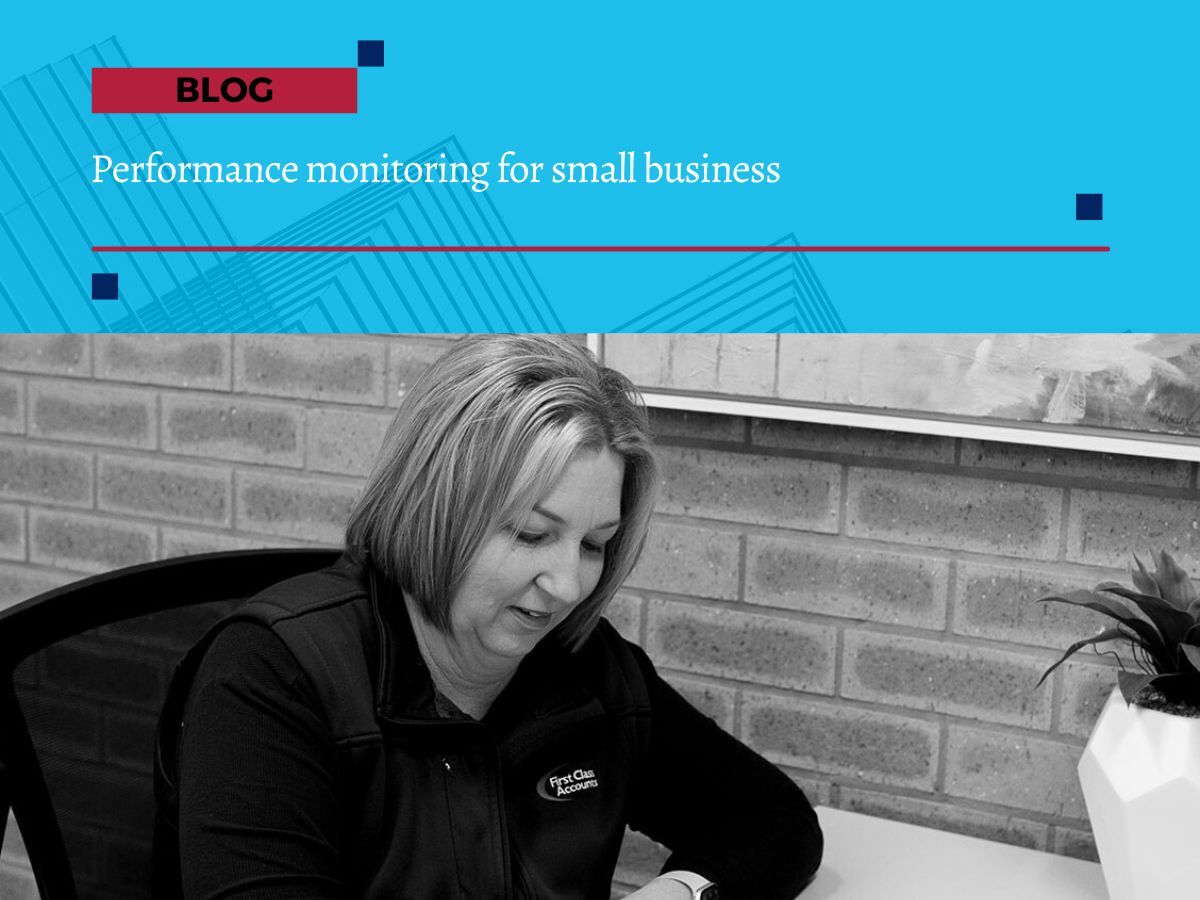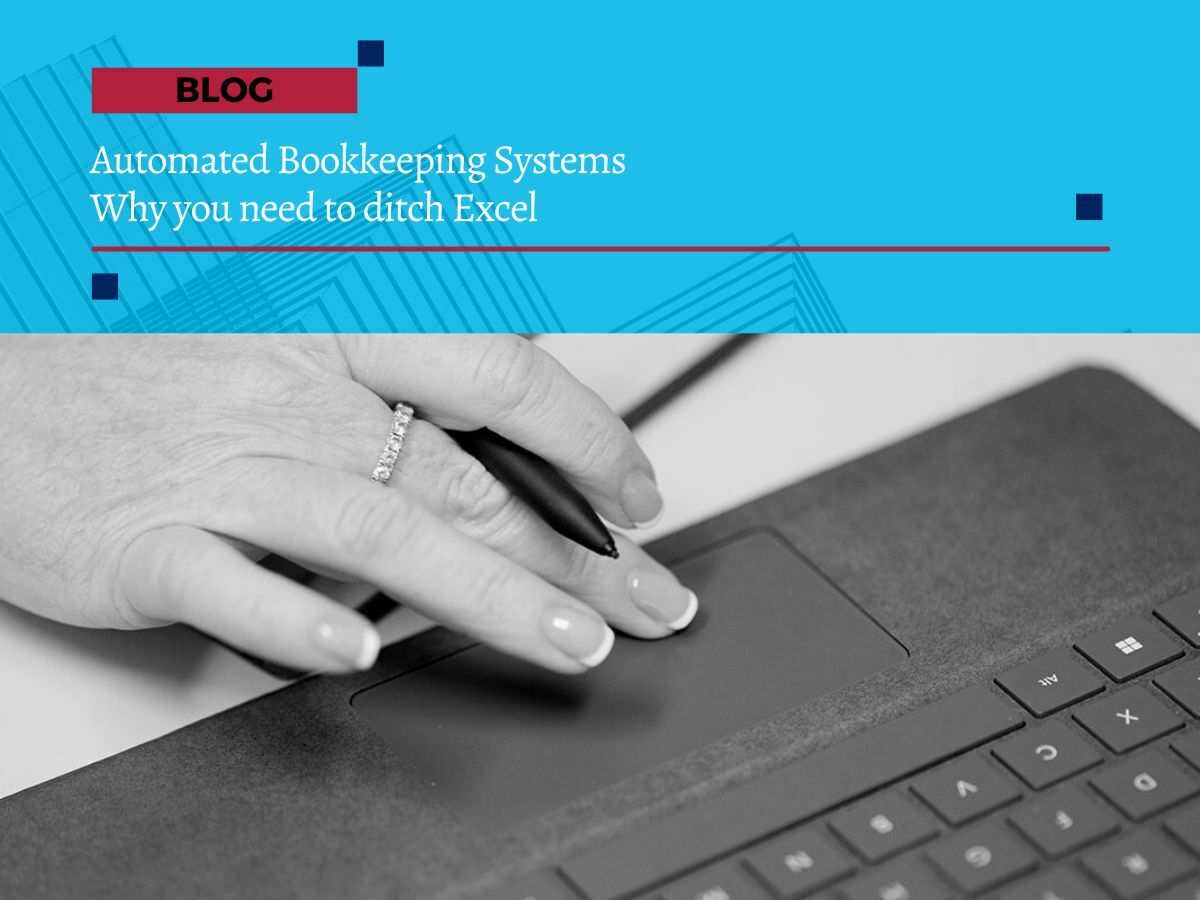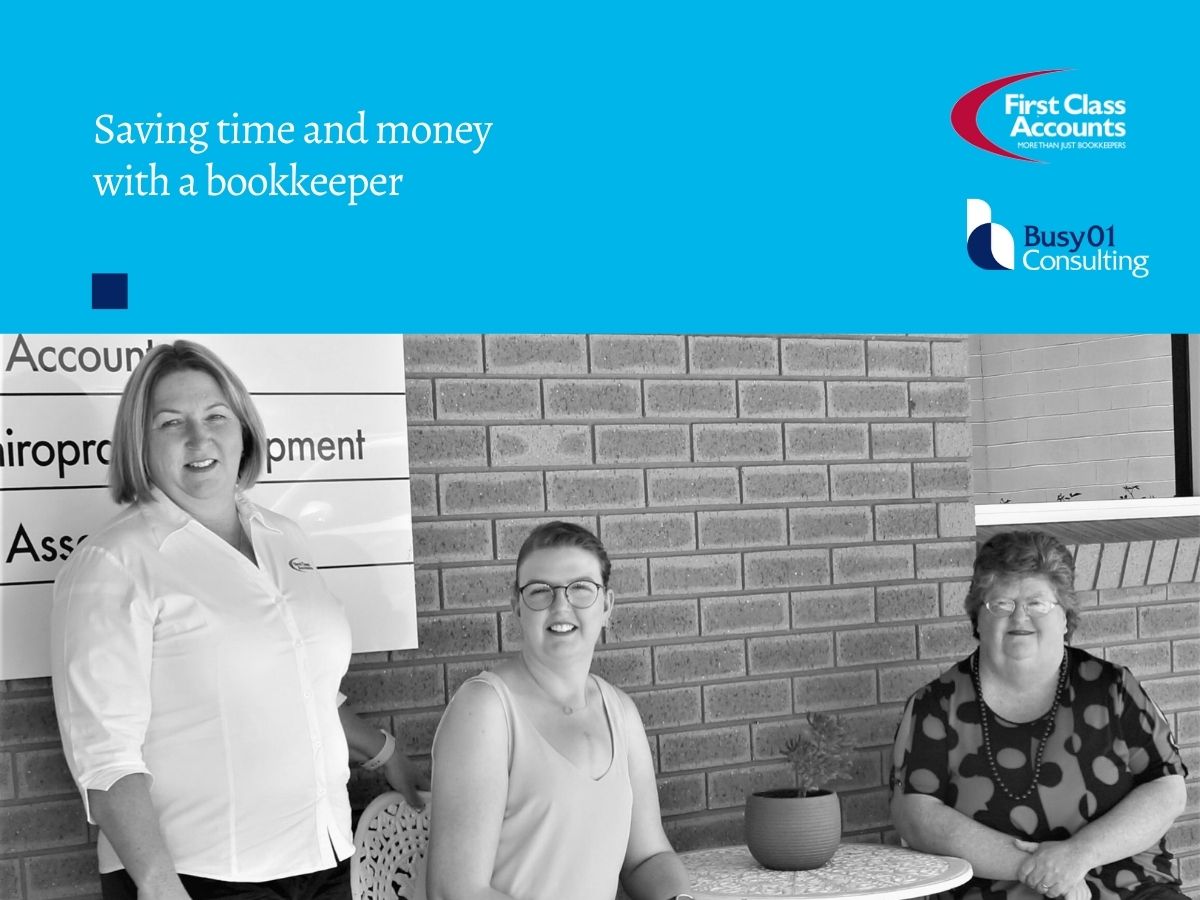
Saving time and money with a bookkeeper
Saving time and money with a bookkeeper
Turning a profit will be high on your list of goals as a business owner. And if you want to generate sustainable margins, that means keeping a close eye on the money that’s going out of the business, as well as what’s coming in.
So, how can your bookkeeper help with this in a practical, day-to-day sense?
The days when your bookkeeper just did the bookkeeping, compiled your accounts and filed your BAS are well and truly over.
Modern bookkeeping firms play a broader role, helping business owners understand their numbers, improve cash flow, manage payroll correctly, and choose systems that support better decision-making.
At First Class Accounts Ovens & Murray, this means reliable bookkeeping paired with practical advice and the right technology, so your business runs smoothly behind the scenes.
If you partner with the right bookkeeper, you can save money in the short, medium and long term.
That saving often comes from better systems, fewer errors, improved cash flow visibility, and time back to focus on running the business. That combination supports steady growth, rather than reactive decision-making.
Key ways your bookkeeper can save you time and improve financial health
The less unnecessary expenditure you have as a company, the stronger your profit margin becomes. On the surface, it sounds simple. In practice, it requires clear data and consistent oversight.
If you are not fully in control of your financial management, it becomes difficult to see where money is being spent, when it is leaving the business, and why profit targets are being missed. This is where accurate bookkeeping and regular reporting make a measurable difference.
Working with a bookkeeper puts you back in control of your numbers. And that level of clarity continues to matter in an environment where costs, wages, and compliance requirements keep changing.
So, what specific things can your bookkeeper do, and how does that support the long-term stability of your business?
Cashflow management and advice
‘Cash is King’ may be a familiar phrase, but it remains accurate. Unless you can balance the cash inflows and outflows in your business, you will struggle to pay suppliers, meet payroll obligations, or plan ahead with confidence.
At First Class Accounts Ovens & Murray, cash flow support focuses on timing as well as totals. Knowing when money is coming in and when it needs to go out allows you to plan for wages, super, tax, and operational expenses without last-minute stress.
This level of cash flow confidence helps business owners sleep better and make decisions based on facts rather than assumptions.
Cost control and spend management
To improve cash flow, you need visibility over your cash outflows. Cost control is not about cutting everything back. It is about understanding what is necessary, what is optional, and what is no longer delivering value.
Clear bookkeeping makes it easier to review supplier costs, identify unnecessary expenses, and make informed choices about spending. Over time, this supports healthier cash flow and stronger margins without cutting corners.
Forecasting and financial modelling
When the key financial drivers in your business are clear, it becomes possible to forecast cash flow and model different scenarios. This allows you to plan for quieter periods, growth phases, and changes in staffing or pricing.
Being able to look ahead gives you options. Instead of reacting when cash gets tight, you can prepare and adjust earlier.
Better management reporting and information
Your decisions are only as good as the information you are working with. Reliable bookkeeping supports regular management reporting that covers cash flow, spending, aged debt, payroll obligations, and overall performance.
Clear reports support better conversations with your accountant and give you confidence in the numbers you are using to make decisions.
Business apps that save time
There are a number of business apps that support cash flow management, payroll processing, reporting, and approvals. When these tools are set up correctly and used consistently, they reduce errors and save significant time.
First Class Accounts Ovens & Murray specialises in advising on and implementing business apps that fit the way you work, rather than adding complexity. The focus is always on practical tools that support your workflow and improve accuracy.
Rather than spending your time fixing issues, chasing information, or managing compliance yourself, working with a bookkeeper gives you reliable support and clearer information.
If you want consistent bookkeeping, accurate payroll, and clearer visibility over your cash flow, First Class Accounts Ovens & Murray can provide steady, done-for-you support. Get in touch today.
FAQs on working with a bookkeeper
How does a bookkeeper save a business money?
A bookkeeper saves money by improving cash flow visibility, reducing errors, ensuring payroll and compliance are handled correctly, and helping business owners make informed decisions using accurate data.
Is a bookkeeper only for BAS and compliance?
No. Modern bookkeeping includes cash flow support, payroll processing, reporting, and advice on systems that improve how a business operates day to day.
Can a bookkeeper help with payroll?
Yes. A bookkeeper can manage payroll processing, superannuation, reporting, and compliance, ensuring staff are paid correctly and on time.

